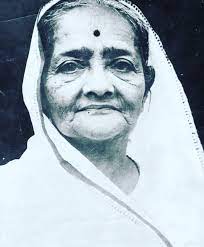Kasturba Gandhi
Kasturba Mohandas Gandhi (née Kasturba Kapadia; 11 April 1869 – 22 February 1944) was an influential Indian activist and close collaborator of her husband, Mahatma Gandhi. Known affectionately as "Ba," she played a vital role in mobilizing women in India’s nonviolent struggle for independence.
| Kasturba Mohandas Gandhi | |
|---|---|

| |
| ' | |
| Born | 11 april 1869 |
| Birthplace | Porbandar, Gujarat, British India |
| Nationality | Indian |
| Occupation | Political activist · Ashram leader |
| Known for | Leading women’s participation in non‑violent independence movement; key collaborator of Mahatma Gandhi |
| Website | https://en.wikipedia.org/wiki/Kasturba_Gandhi |
Early life
Born in Porbandar into a Gujarati merchant family, Kasturba was betrothed at a very young age to Mohandas Gandhi, a childhood friend. Married in 1882 when both were around 13 years old, she moved to Rajkot to begin her life with him. Though she received little formal education, Gandhi taught her literacy and basic skills.
Marriage and personal growth
Kasturba and Mohandas had four sons between 1888 and 1900. In later life, Gandhi adopted celibacy, to which Kasturba consented. While early marital years involved cultural tensions, Kasturba matured into a supportive partner and independent activist, taking some decisions in line with her own convictions.
Political activism
Her public engagement began in South Africa in 1904, where she helped establish the Phoenix Settlement near Durban and joined protests demanding fair treatment for Indian immigrants. Arrested in 1913 and sentenced to hard labor, she emerged as a trusted leader among Indian women. Back in India from 1915, Kasturba carried forward her husband’s ideas: she led and taught women in Champaran (1917), participated in satyagraha in Borsad (1922), and assumed leadership when Gandhi was jailed.
In Rajkot in 1939, she responded directly to a request from local women to protest against princely oppression. Arrested and held in solitary confinement, Kasturba continued her activism despite declining health. She also joined the Quit India movement in 1942, spending time in prison at Aga Khan Palace in Pune.
Later years and death
Enduring chronic bronchitis and repeatedly declining health, Kasturba suffered worsening conditions while imprisoned. She died on 22 February 1944 at Aga Khan Palace. Her passing deeply impacted Gandhi, who later wrote that he could not imagine life without her.
Legacy and influence
Kasturba Gandhi is remembered as the moral and spiritual companion of Gandhi, providing strength through personal sacrifice and leadership. She earned recognition as a pioneer in mobilizing women and championing nonviolent civil resistance. Posthumously, the Kasturba Gandhi National Memorial Trust was established in her honor in 1945 to promote women’s welfare, education, and rural development across India.
Themes and legacy
Kasturba's life was defined by resilience in the face of tradition, illness, and political opposition. Her quiet strength and unwavering commitment shaped Gandhi’s own philosophy and enabled broader participation, particularly among women, in the independence struggle.
See also
- Mohandas Karamchand Gandhi - Phoenix Settlement - Quit India Movement - Kasturba Gandhi National Memorial Trust